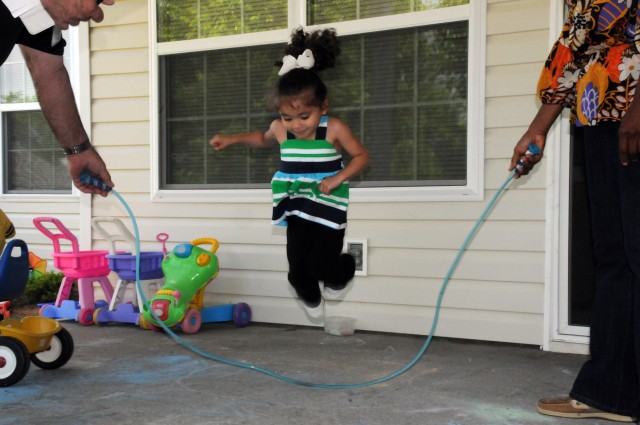FORT RUCKER, Ala. -- A chance to grow personally and professionally while staying at home awaits community members when they choose to become Family Child Care providers.
Currently, the local Child, Youth and School Services' FCC program is seeking roughly 20 new child care providers to care for children in their own homes, FCC director Vender Tabb said.
The shortage resulted from some retirements, permanent changes of station or returns to school, she added.
Potential Family child care providers undergo strict screening processes. If approved, they attend free nutritional, safety, first-aid, child development and cardiopulmonary resuscitation classes to become certified. During the nutritional portion, trainees learn U.S. Department of Agriculture guidelines and receive menu ideas, Tabb said.
"The training is outstanding. It helped me be a better parent," said Percillia Villanida, a 10-year FCC provider who raises children in her Bowden Terrace home. "It's thorough, but it's not difficult."
Once training is completed, fire, health and safety officials ensure the home fits government standards, and FCC staff make follow-up visits at least once a month, Tabb said. If FCC providers live off-post, state officials must license them as well.
She said the checkups and regulations ensure Army children are in safe and nutritious environments.
Once certified, FCC staff ensures providers have the necessary tools to perform their jobs well. Two lending libraries - which include strollers, highchairs, games and books - give FCC providers resources to draw upon.
Enrolling children in FCC care has many benefits, Tabb and Villanida, an Army wife, said.
FCC personnel offer overnight and multiple-day care, giving Army parents who work night or early-morning shifts or travel away on temporary duty assignments a viable care option, they said.
"We have a little more flexibility to meet needs," Villanida said. "If parents have really early mornings, if they have (physical training), then we're here. Most of my children arrive at 5:30 in the morning."
FCC providers can care for two infants and four children at a maximum, Tabb said, meaning smaller ratios of children to adults than in most day care settings.
Villanida said becoming a FCC provider not only made her a better parent but integrated her into the community.
"You build a lot of camaraderie. I've met a lot of wonderful women," she said.
Tabb said many of her providers are parents who stay at home with their own children and desire to take care of other children and earn extra money.
Villanida urges anyone interested in becoming a provider to try it.
"If there's a woman out there who wants to develop a career but feels strongly about balancing the home life ... it's rewarding and challenging," she said.
To apply, pick up packets from the FCC office in Bldg. 132 off Shamrock Street or call 255-3446 or 255-1238.


Social Sharing